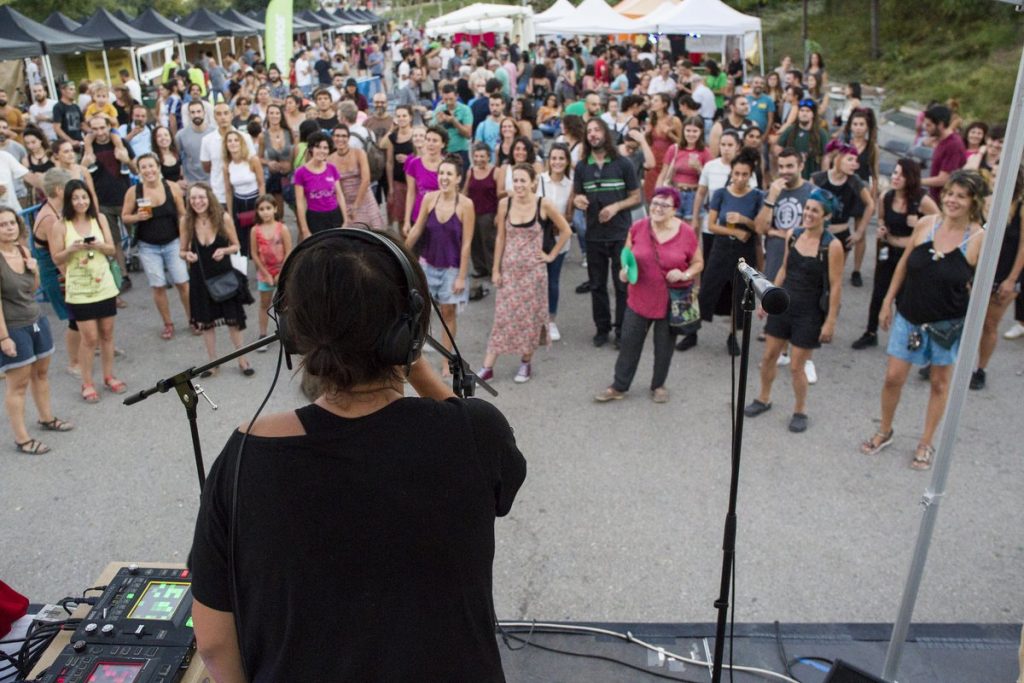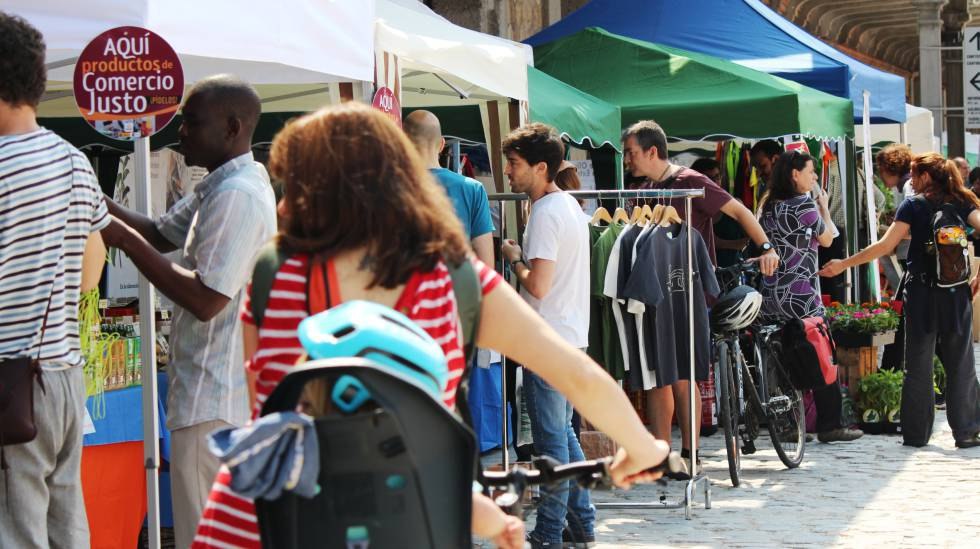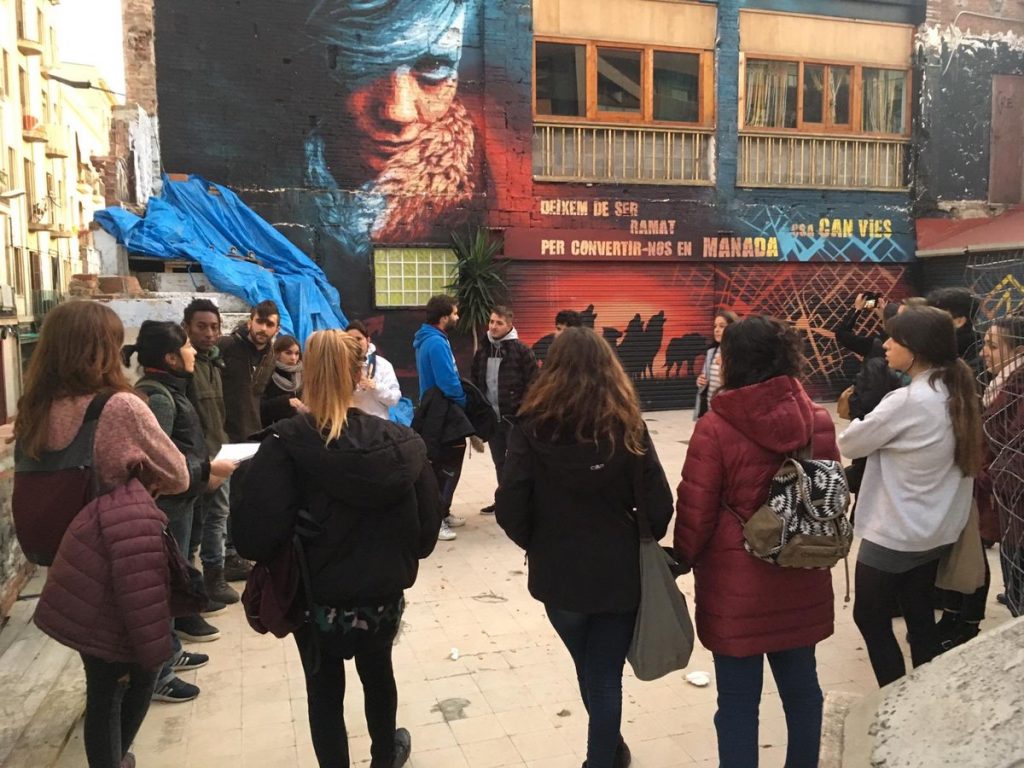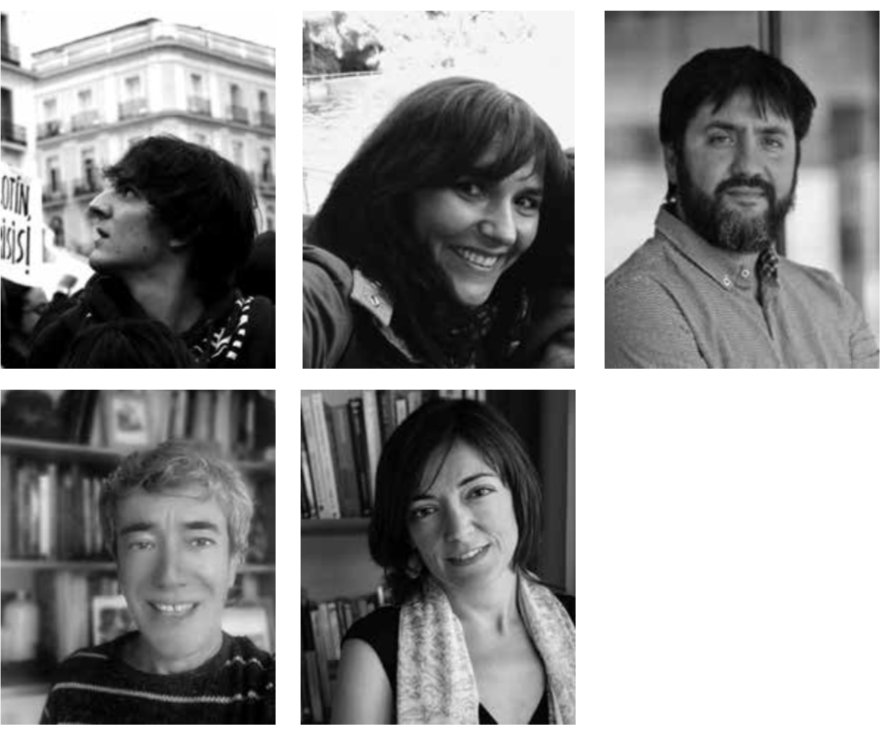This essay is part of the book Public Finance for the Future We Want, you can find the entire collection of essays here.
The ‘social economy’ refers to economic structures that emerged halfway through the mid-ninteenth century in the midst of the Industrial Revolution in Europe and that placed the means of production in the hands of the people (workers, consumers, etc.). These structures provided a stable framework for democratizing the economy. Cooperatives are the prime example, but other forms such as associations, participatory foundations, mutual societies and so on spread all over the world.1 The social economy became widely known in the 1980s. Over time, globalization processes gave rise to the ‘Another World is Possible’ movement culminating in 2001. Parallel to that, the concept and proposals of the ‘social and solidarity economy’ (SSE) emerged as the movement’s economic arm: a global and more critical political and economic proposal that provided not merely a business formula to ‘humanize’ the capitalist system but also an alternative that placed people and sustainable living at the centre of the economy – in line with the principles of equity, work, environmental sustainability, cooperation, non-profit, social commitment, gender equality and respect for diversity.2 The SSE covers every area of economic life: paid work and care work, housing, consumption, the environment, education, industrial processing, agriculture, environmental management, health, culture and so on. This chapter provides an overview of the main policies, actions and measures that municipalist governments in various Spanish cities are implementing to promote the SSE.

Municipalist alternatives spreading across Spain
Although Spain has a long SSE tradition, especially in certain regions,3 it is only in the last few years that it has begun to be included in government structures and policies. The SSE provides a collective economic alternative that works for people, designing solutions for territorial development with economic foundations based on sustainable living. The year 2011 was in many ways a before-and-after moment for Spain’s political system: the citizens’ movement ‘15-M’ brought millions of Spanish people out onto the streets to demand genuine democracy. This social movement created citizens’ platforms to put up ‘municipalist’ candidates for the local government elections, and they are now running some of the country’s main cities, such as Zaragoza, Barcelona, Madrid and Coruña. Their manifestos included some of the demands drawn from the SSE agenda,4 such as: to support responsible and transformative business models; to foster new types of relationships among government, citizens and companies in cities;5 to encourage citizen participation in policy-making; to promote responsible consumerism and local trade; to bring basic public resources such as water and energy back under municipal government and/or cooperative management; to manage housing differently; and to protect the environment and natural resources. In short, the citizens’ platforms sought to develop sustainable cities in which the economy is at the service of people, the common good and sustainable living. So far examples of the SSE in action include:
-
- cooperative supermarkets in the country6 (La Osa, Madrid; A Vecinal, Zaragoza); bicycle courier cooperatives called Mensakas (Barcelona) and La Pájara (Madrid) set up as an alternative to the giant web-based com- panies such as Uber or Deliveroo; construction of cooperative housing (La Borda, Barcelona)
- setting up of cooperatives for women employed as domestic workers as a way to improve their working conditions (A3Calles, Madrid)
- cooperation between municipal governments and community centres (EVA, Madrid; Patio Maravillas, Pamplona; Can Batllo, Barcelona; Casa das Mulleres Xohana Torres, Coruña; etc.)
- introduction of a guaranteed basic income for citizens (Coruña and Barcelona)
- and basic services once again returned to municipal government man- agement (electricity in Barcelona; cleaning in Castelldefels; bicycles in Madrid; payment collection service in Oviedo; water in Terrasa and Valladolid; transport in Santiago de Compostela, etc.).
These concrete changes were made possible by some key policies and meas- ures implemented by municipalist governments in various Spanish cities to promote the SSE, as presented here.

Strategic plans and funding to promote the SSE
A host of new public policies are being developed by some municipalist governments, including the adoption of strategic plans that promote issues such as sustainable consumption and SSE at the city level and in an integrated way, through measures centred on: a) services concerning technical advice and training; b) support for SSE businesses to access finance; c) mutual cooperation dynamics such as fairs and social markets; d) awareness-raising and public information campaigns; and e) reactivation of the community and neighbourhood economy.
In terms of municipal funding, the City Council in Madrid has recently approved a Social Economy Strategy9 that includes dozens of actions with €5.9 million in funding. Similarly, the City Council in Barcelona has allocated funding of €24 million for its Plan to Promote the Social Economy.10 Strategic plans by municipal governments provide solid foundations for the development of the SSE because they delineate a long-term vision, which enables citizens and policy-makers to join forces in pursuing fundamental socioeconomic changes and to sustain this thriving movement.
Socially responsible public procurement policies
In the European Union, government procurement to meet society’s needs equals 20 per cent of gross domestic product (GDP).11 Thus the way in which governments obtain these goods and services is decisive: socially responsible public procurement can become a powerful means to transform the capitalist system.
Even though small and medium-sized businesses account for 80 per cent of the Spanish economy, multinational companies still obtain the majority of government contracts. To reverse this illogical situation, the Spanish SSE movement is calling for socially responsible public procurement that establishes fair trade, environmental, and gender equity standards that companies must meet before they are eligible to manage a public service.
Following this approach, 5 per cent of contracts tendered by the city coun- cil of Coruña are now reserved for social enterprises that give priority to employing people from disadvantaged groups. In Zaragoza and Barcelona regulations have been introduced recommending that businesses operating
in the social economy be contracted or subcontracted for a minimum of 5 and 35 per cent of public procurement, respectively. Another requirement introduced by Córdoba is that the food supplied as part of contracted pub- lic services should preferably be organic and fair trade. In Avilés, a public hiring policy gives priority to young people, people over 45 and people with disabilities.
A focus on socially responsible public procurement benefits SSE businesses such as cooperatives, socially inclusive businesses or not-for-profit businesses, thus promoting a more democratic and inclusive management of public services. This is undoubtedly a good way to redistribute wealth.
With the aims of promoting local development, rehabilitating underused spaces and creating symbolic buildings to make the SSE more visible, some local governments have handed over infrastructure or land for SSE activities. Examples include Pamplona-Iruña with the Geltoki project12 in the city’s old bus station; Gernika’s Astra,13 a former arms factory; and Barcelona’s Coòpolis, an old warehouse in the historic Sants neighbourhood now being used to promote the SSE. In other cities and towns such as Madrid, Valencia, Seville, Carmona and Elche, local governments have recently placed municipally owned properties at the service of the SSE.
Experimental projects have been launched in some municipalities to promote the SSE in local settings and to spark innovation in local socioeconomic development. The MARES Project in Madrid and Coòpolis in Barcelona are success stories in this regard.

Box I
Community-centred development models in Madrid and Barcelona
Madrid’s MARES14 is an innovative project to transform the city through SSE initiatives in four areas and five sectors that are strategic for changing the urban model. Twenty per cent of the project’s funding comes from the municipality and eighty per cent is from the European Union. The project came as a direct response to the recent economic crisis and sought to create value by turning citizen initiatives into productive enterprises in sectors as diverse as transportation, food, recycling, energy and care. Over a period of three years, MARES has set out to aggregate, scale up and promote the growth of this ecosystem of social initiatives, enterprises and organizations to achieve community-centred economic development based on sustainability.
Another project that stands out for its ability to make an impact on urban development is Coòpolis in Barcelona,15 a community-based project receiving support from the Barcelona City Council, that has become the biggest centre of cooperativism in the south of Europe with 4,200 m2. Located in the neighbourhood of Sants, a district with an enormously valuable cooperative movement history that dates back to the early twentieth century, Coòpolis articulates a whole network of SSE businesses with a strong commitment to urban and economic change, as well as a very active network of neighbour- hood and cultural associations. Industrial buildings that had fallen into disuse now house the Coòpolis project, including free incubation spaces, all kinds of workshops, coworking spaces, informative class- rooms, rest areas and meeting rooms. Coòpolis is based on a model of governance that keeps autonomy and power in the hands of local businesses and associations.
Ethical financing initiatives
Another important initiative launched in recent years to promote the creation of alternative economic circuits is the co-funding campaigns between local governments and SSE organizations. One example is matchfunding, where a sum of money from local government complements the citizen contributions campaigns to raise small donations and thus increase the funds available. Early experiences are the €12,000 provided by the Zaragoza City Council to promote ideas and local projects in the fields of energy, mobility, environment, technology, digital culture, science and audio-visuals or the €96,000 euros provided by the Barcelona City Council in campaigns around creating cooperative and communal economies and projects for local, social entrepreneurship.
Another way in which ethical funding has been promoted is through joint funds by local governments and ethical finance organizations. In Valladolid and Madrid, the city councils have provided €100,000 to enable such financial institutions to provide interest-free loans for people with limited access to funding from commercial banks: unemployed people over 45, the long-term unemployed, people with disabilities, vulnerable women and immigrants, among others.
Social currencies are also a way to value local forms of socioeconomic organization that bypass money and encourage critical consumerism. In Barcelona, a sample of 315 families receiving social security allocations get part of that income in the new citizens’ currency (REC, Citizen Economic Resource), which can be used in 85 small local businesses that are part of the initiative. The aim is to strengthen local trade and neighbourhood businesses. The initiative, currently in a pilot phase, is set to grow to an estimated €1.5 million in neighbourhood trade in two years’ time. Other cities such as Seville and Madrid are now assessing the feasibility of similar schemes.
Innovative approaches to manage public services
All over the country, small-scale experiments in public services propose new models that could radically transform governance in cities and towns based on cooperation between local governments and society. Essential and strategic public services have been brought back under municipal government management or added to the portfolio of public services. Some examples are the management of energy and water, new transportation services or other local government services such as cleaning or funeral services that had been privatized in the last decades. Some other projects are being launched as public-community partnerships for joint management which is complicated and does not have much of a tradition in Spain, but which is providing a very valuable testing ground. They include: La Harinera in Zaragoza, a municipal cultural space where decisions are taken jointly by citizens, cultural players and the city council; the users cooperative Comunitat Minera Olesana that manages the integral water services of the municipality Olesa de Montserrat;16 or the network of 14 cooperative spaces in Cataluña, which brings together more than 121 local public and private organizations.
The below mentioned projects reflect different ways of understanding the operation of companies and the relationship between governments and people. One of these arrangements’ first achievements is to normalize collective enterprises, breaking with the hegemonic model of the successful, all-powerful individual male entrepreneur.
New relationships between the SSE and local governments: daring to make an impact
After little more than three years into the new municipalist governments’ terms, it is too early to identify clearly what impacts the different SSE policies have had in the cities and their surrounding areas. The changes that have taken place should not be solely attributed to the municipal policies implemented in recent years: the economic crisis and the rise of the major social movement known as 15-M led to profound changes in people’s lifestyles and ways of thinking.
In the institutional sphere, most economically influential international organizations have gradually signed up to the pro-SSE discourse. Although this may only be with a view to shifting from a blatantly greedy capitalism to one that is more humane and sensitive, these positions have been key to grounding certain transformative economic policies.
With the disclaimer that some governments are more genuinely committed to the SSE than others, clearly SSE policies have become more mainstream in Spanish municipalities since 2015. On that basis, we can draw a few conclusions as presented below.
The social solidarity economy is here to stay
It seems reasonable to expect that after the 2019 municipal elections the policies to promote the SSE will continue, for three reasons: first, there is now a critical mass supporting the SSE in society and business, to such an extent that it has become a voice that can influence economic policies; second, there is unanimity among public authorities in proclaiming its benefits; and third, developments in legislation and the adoption of directives from the EU have led to the most conducive legal framework for the SSE that Spain has ever seen.
In spite of this, it is unlikely that we will see substantial changes in the structure of the productive fabric and, more importantly, in knowledge of the SSE among the general public.17 The absence of a compelling narrative around transformative economies that are feminist, solidarity-based and green – perhaps only with the exception of Barcelona18 – is preventing the SSE proposal from reaching all citizens and from achieving a bigger impact.
After nearly four years we can see some significant changes in the land- scape of our cities. For example, the new uses of municipal buildings are unmistakable evidence that something is changing in the city. These build- ings were already there, but were underused or vacant, and the municipal governments, in collaboration with SSE organizations and other citizens’ groups, have transformed them into stable facilities for promoting the SSE. The aim of these facilities is to create the so-called SSE territorial ecosystems.
In some cities such as Madrid, support for the SSE is so recent that it is too soon to measure the impact it has had on businesses, people and the city. Nevertheless, we can point to two things: first, this support can be expected to lead in the medium term to many new initiatives, while existing ones will become stronger. Second, given the possibility that citizen-led and SSE initiatives will be able to bid for government contracts, in the medium term municipal basic services could become not-for-profit and community-run.
Continuous participatory management of the city
Moving forward with the introduction of participation and decision-making mechanisms for citizens is one of the goals of the new municipalism movement. This is directly connected to the values of the SSE and should permeate municipal policy on two levels. First, people need to have a say in how the city is managed and be allowed to weigh in on budgeting decisions; second, citizens need to have a decisive influence on new models that include the public-community management of the city’s resources. This poses a complex challenge, and there will be a lot of resistance to it, as it implies building a new sphere of the commons. What is for certain is that the SSE will continue to be the organized expression of economic citizenship.
About the authors
Ana Álvaro, Adrián Gallero, Miguel Ángel Martínez, Fernando Sabín and Sandra Salsón belong to cooperatives and organizations currently involved in the develop- ment of different projects to boost the SSE in the city.

Notes
1 Cooperatives – and the social economy as a whole – are based on 7 cooperative principles: Voluntary and open membership; Democratic member control; Member economic participation; Autonomy and independence; Education, training and information; Cooperation among cooperatives; Concern for the community. https://www.ica.coop/en/cooperatives/cooperative-identit
2 Charter of Principles of the Solidarity Economy: https://www.economiasolidaria.org/car- ta-de-principios
3 Over the last forty years, significant frameworks have been established in the Basque Country, Cataluña, Andalucía and Murcia, while specific plans developed more recently include the “In- novation Strategy for the Social Economy in Andalucía 2010-2013” and the “Navarra Integrated Social Economy Plan 2017-2020”.
4 It is worth bearing in mind, however, that the powers required to develop the SSE are mainly in the hands of the autonomous communities, the government level higher than the municipalities.
5 New paradigms for public-cooperative-community partnerships instead of the large corporations
owned by anonymous investors that mostly operate in cities.
6 Inspired by the Park Slope Food Coop cooperative supermarket in Brooklyn (NY).
7 Several of Spain’s municipalist governments have recently drawn up a map that brings together
some of the main policies for change, including local government policies to support the social and solidarity economy. The website socioeco.org has also designed a map of government policies from all over the world in support of the social and solidarity economy.
8 These include the “Barcelona City Council’s SSE Promotion Plan 2017-2019”, the “City of Ma- drid’s Social and Solidarity Economy Strategy 2018-2025” and the “Seville Social Innovation Master Plan for Employment 2016-2020”, which were drawn up by means of participatory processes involving numerous different community groups in these cities. Another relevant milestone is Madrid’s “City of Care Plan”, which stands out for being one of the first examples of placing the care economy at the centre of local development policies.
9 The City of Madrid’s Social and Solidarity Economy Strategy 2018-2025: https://www.madrid. es/UnidadesDescentralizadas/UDCObservEconomico/CarpetaEspecialInformativo/Actividades%20 2018/ESTRATEGIA_MUNICIPA%20DE%20ESS.%20DEFINITIVO.pdf
10 Plan to Promote the Social and Solidarity Economy 2016-2019: https://ajuntament.barcelona.cat/ economia-social-solidaria/es/acompa%c3%b1amiento-y-formaci%c3%b3n
11 For more information, see: http://www.obcp.es/
12 For more information, see: http://www.pamplona.es/verPagina.asp?idPag=231094EN
13 For more information, see: http://archivetaz.org/fabrica-de-creacion-de-cultura-astra-de-
gernika/; http://www.astragernika.net/
14 For more information, see: https://maresmadrid.es/
15 For more information, see: https://bcn.coop/bienvenidos-a-coopolis/
16 Article by Mariana Vilnitzky, 2017, on the website of newspaper El Dario about the users cooper-
ative Comunitat Minera Olesana: https://www.eldiario.es/alternativaseconomicas/Aiguacoop- cooperativa-ciudadania_6_691590860.html.
For more information, see: https://www.cmineraolesana.cat/
17 Rubio, X. Los retos de la economía solidaria. Revista Alternativas Económicas. Octubre 2016
18 Ciutats cooperatives. Esbossos d’una altra economia urbana. Ivan Miro i Acedo. Icaria Editorial.
2018.
